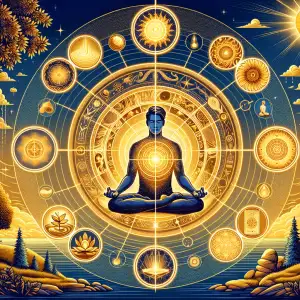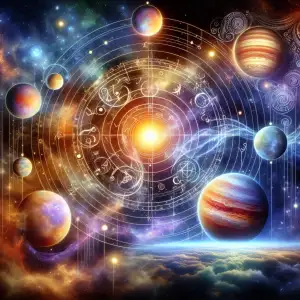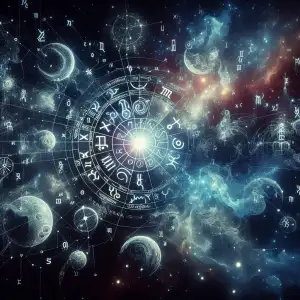Decoding the Indigo Child Birth Chart
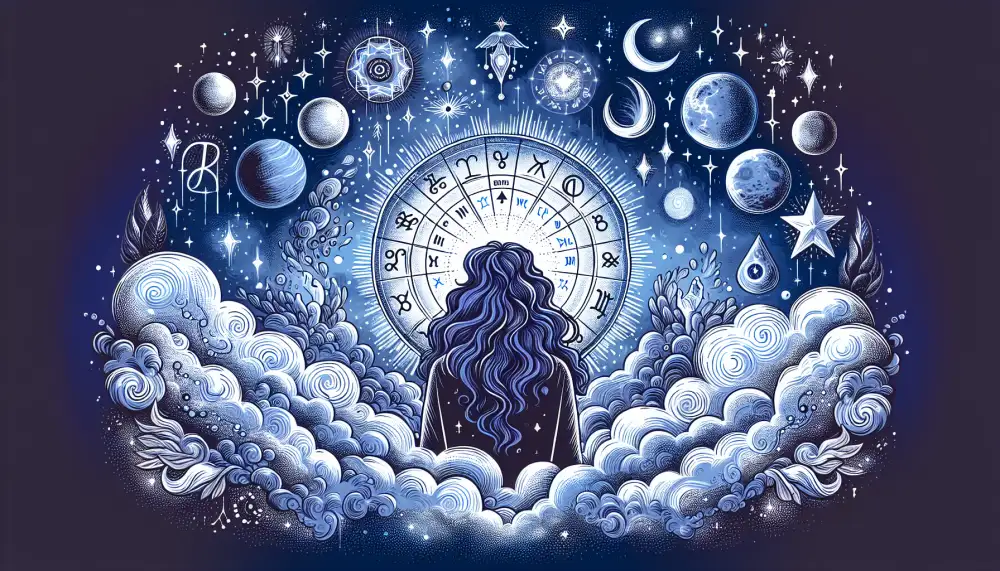
Strong intuition placements
Seeking meaning, purposeThe search for meaning and purpose is a common thread among those who identify with the concept of "indigo children." While there's no scientific basis for this belief system, it resonates with individuals who feel a deep-seated yearning for something more in life. They often possess a strong sense of mission, a feeling they're here to make a difference in the world.
Astrology, particularly birth chart analysis, can be a tool for self-discovery on this journey. While it doesn't define who we are, it offers a language to understand our strengths, challenges, and potential. For those who resonate with the indigo child concept, certain astrological placements might hold particular significance.
For example, a prominent Uranus in the birth chart, the planet of innovation and rebellion, could manifest as a desire to challenge the status quo and fight for social justice. Neptune, the planet of dreams and spirituality, in a significant position might suggest a heightened sense of intuition and a connection to something larger than themselves.
However, it's crucial to remember that astrology is not about labeling or limiting individuals based on their birth charts. It's about understanding the energies at play and using that knowledge as a catalyst for personal growth and fulfillment.
Ultimately, the search for meaning and purpose is a deeply personal one. Whether or not one identifies with the concept of "indigo children," the desire to make a difference and live a life of purpose is universal. Astrology can be a valuable tool on this journey, providing insights and guidance as we navigate the complexities of life and strive to create a more meaningful existence.
Challenging traditional beliefs
The concept of "indigo children" and their purported unique traits and spiritual purpose has gained popularity in New Age circles. Proponents often associate specific astrological placements or patterns with these individuals, suggesting a correlation between their birth charts and their supposed indigo nature. However, it is crucial to approach such claims with a critical and discerning eye, grounding our understanding in established astrological principles and avoiding generalizations.
While the idea of indigo children can be intriguing, it's essential to remember that astrology, as a symbolic language, doesn't offer definitive labels or categorize individuals into rigid groups. A birth chart is a complex map of planetary positions at the time of birth, and each placement interacts with others, creating a unique astrological signature. Attributing specific traits solely based on the concept of "indigo children" oversimplifies the intricate nature of astrology and individual human experience.
Furthermore, the characteristics often attributed to indigo children, such as strong will, empathy, creativity, and a questioning of authority, are qualities that can be found in individuals across various spiritual beliefs and backgrounds. These traits might also be influenced by a multitude of factors like upbringing, environment, and personal experiences, rather than solely determined by astrological placements.
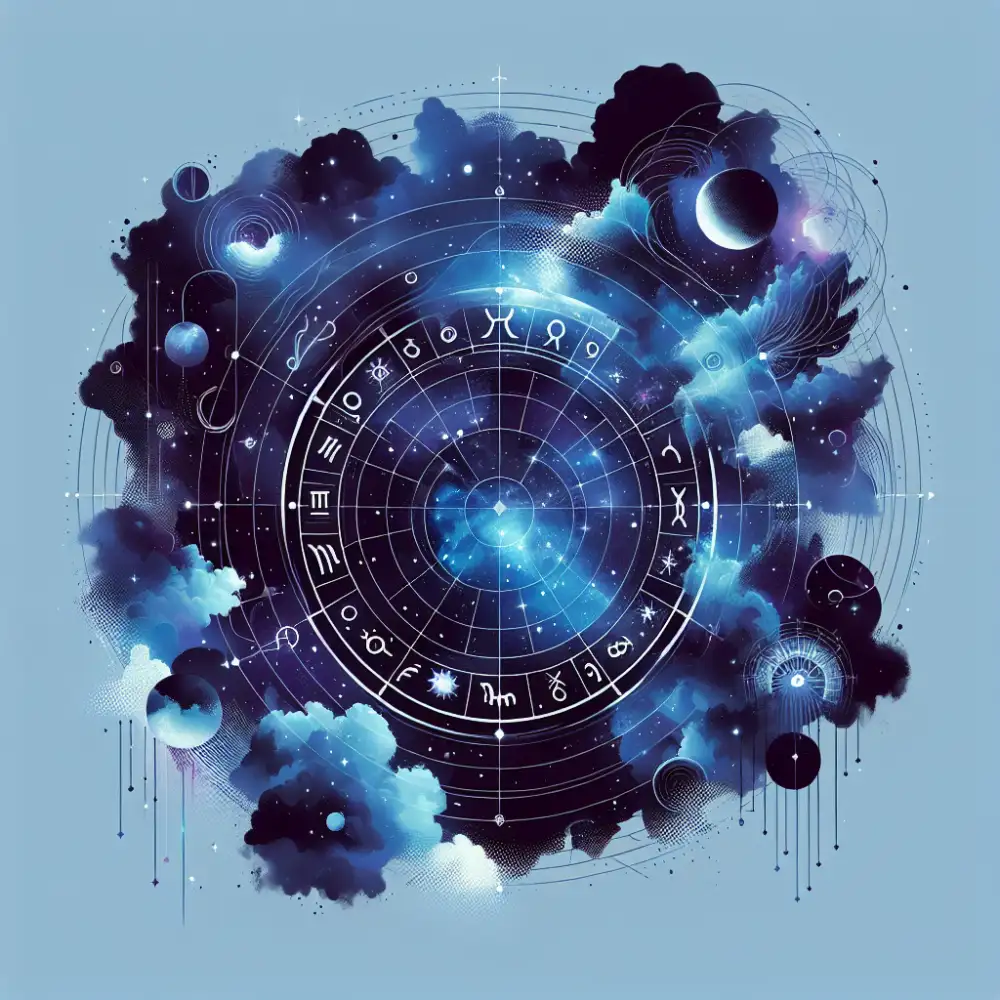
It's important to approach astrological interpretations with nuance and avoid using them to create limiting or exceptionalist narratives. Instead of seeking confirmation of pre-conceived notions, let's use astrology as a tool for self-discovery, understanding our strengths and challenges, and navigating our unique life paths with greater awareness.
The Indigo Child's birth chart, a cosmic fingerprint revealing a soul's journey, speaks of innovation, empathy, and a deep yearning for a world aligned with authenticity.
Willow Evergreen
Openness to alternative spirituality
While some individuals within the New Age movement associate indigo children with specific astrological placements or patterns, it's crucial to approach such claims with a discerning and critical eye. Astrology, while a fascinating system for understanding personality traits and potential life paths, lacks scientific backing for these specific classifications.
It's important to remember that astrology shouldn't be used to label or categorize children into rigid groups. Every individual, regardless of their birth chart, is unique and possesses their own strengths, challenges, and potential.
If you're drawn to astrology as a tool for self-discovery, approach it with an open mind but also a healthy dose of skepticism. Instead of searching for definitive answers in the stars, use astrology as a springboard for introspection and personal growth. Focus on understanding your own individual strengths and challenges, and nurture the development of your child's unique talents and abilities.
Remember, a loving and supportive environment, where children feel seen, heard, and valued for who they are, is far more influential than any astrological interpretation.
Connection to higher consciousness
The concept of "indigo children" originates from New Age beliefs and suggests that certain individuals possess special, intuitive, and sometimes supernatural abilities. While there's no scientific basis for this concept, some astrologers believe certain astrological placements might indicate a predisposition towards traits often associated with indigo children. These interpretations often focus on planets like Uranus (innovation, rebellion), Neptune (spirituality, intuition), and Pluto (transformation, psychic abilities), and their aspects to personal planets like the Sun, Moon, Mercury, Venus, and Mars.
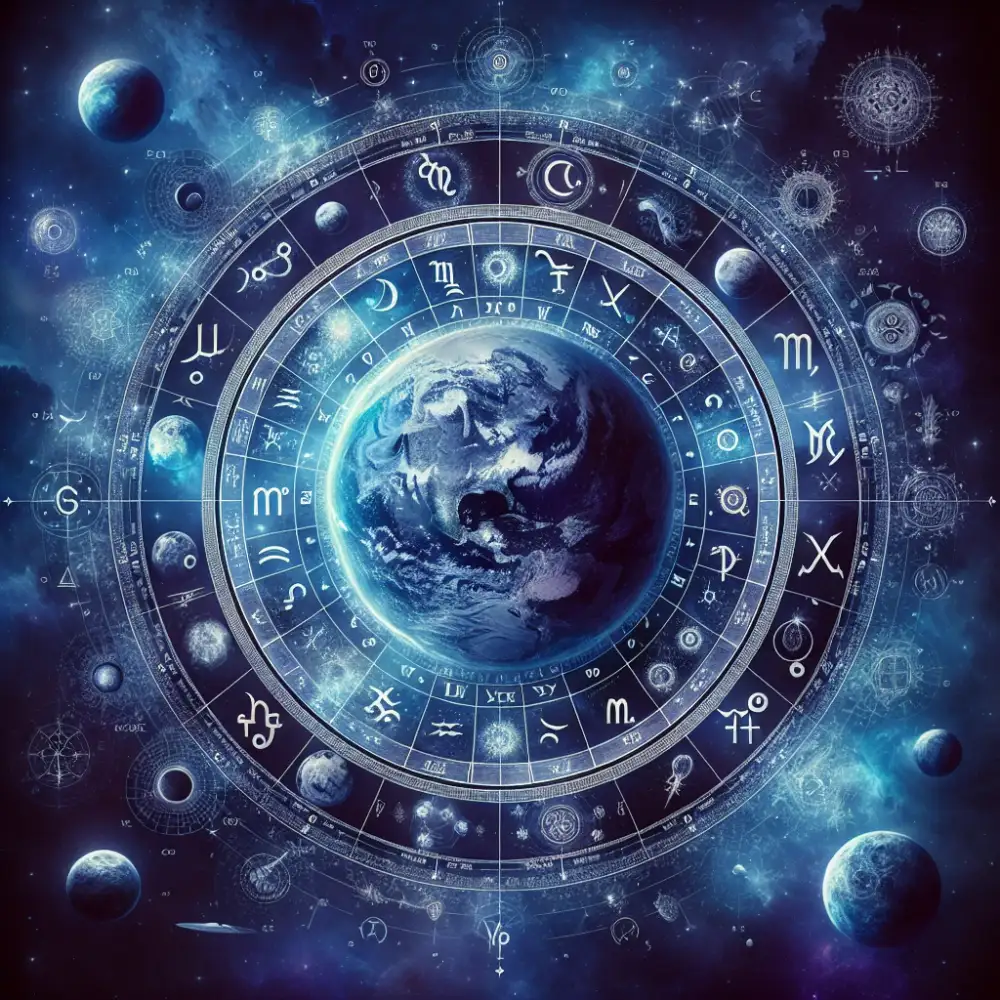
For example, a strong Uranus placement (especially in conjunction or square aspect to the Sun, Moon, or Mercury) might suggest an unconventional, independent, and rebellious nature, often attributed to indigo children. Similarly, a prominent Neptune (especially in aspect to the Sun, Moon, or Mercury) might indicate heightened sensitivity, intuition, and a strong connection to the spiritual realm. Pluto aspects, particularly to personal planets, could suggest an intense, transformative energy and a deep interest in exploring hidden aspects of life and death.
It's crucial to remember that astrology is a complex system of symbolic interpretation, and individual chart analysis should be done holistically, considering all planetary placements and aspects. While certain placements might hint at qualities often associated with indigo children, they don't definitively confirm or deny such classifications.
Furthermore, it's essential to approach these concepts with a healthy dose of skepticism and critical thinking. Attributing specific traits or abilities solely based on astrological placements can be misleading and potentially harmful. Ultimately, each individual's journey is unique and shaped by a complex interplay of various factors, including their environment, upbringing, and personal experiences.
Potential for psychic abilities
While some believe that indigo children possess unique psychic abilities due to their astrological placements, it's important to approach this topic with a healthy dose of skepticism.
Astrology, including birth chart analysis, is not a scientifically proven method for predicting personality traits or psychic abilities. Attributing specific abilities like telepathy or clairvoyance to certain astrological placements, like being an "indigo child," goes beyond what astrology can reliably claim.
While many people find meaning and guidance in astrology, it's crucial to remember that:
Astrology is not a science: It lacks empirical evidence and operates outside the realm of scientific methodology.
Psychic abilities are not scientifically proven: While some individuals report psychic experiences, these experiences are difficult to replicate and study under controlled conditions.
Correlation does not equal causation: Even if a higher percentage of individuals who identify as "indigo children" report psychic experiences, this doesn't mean that being an "indigo child" causes these experiences. Other factors, like personal beliefs and suggestibility, could be at play.
Instead of focusing on potentially unfounded claims about psychic abilities, it can be more helpful to view the concept of "indigo children" through a psychological lens. Perhaps these children are simply demonstrating advanced emotional intelligence, empathy, or a strong sense of purpose, which are all valuable traits.
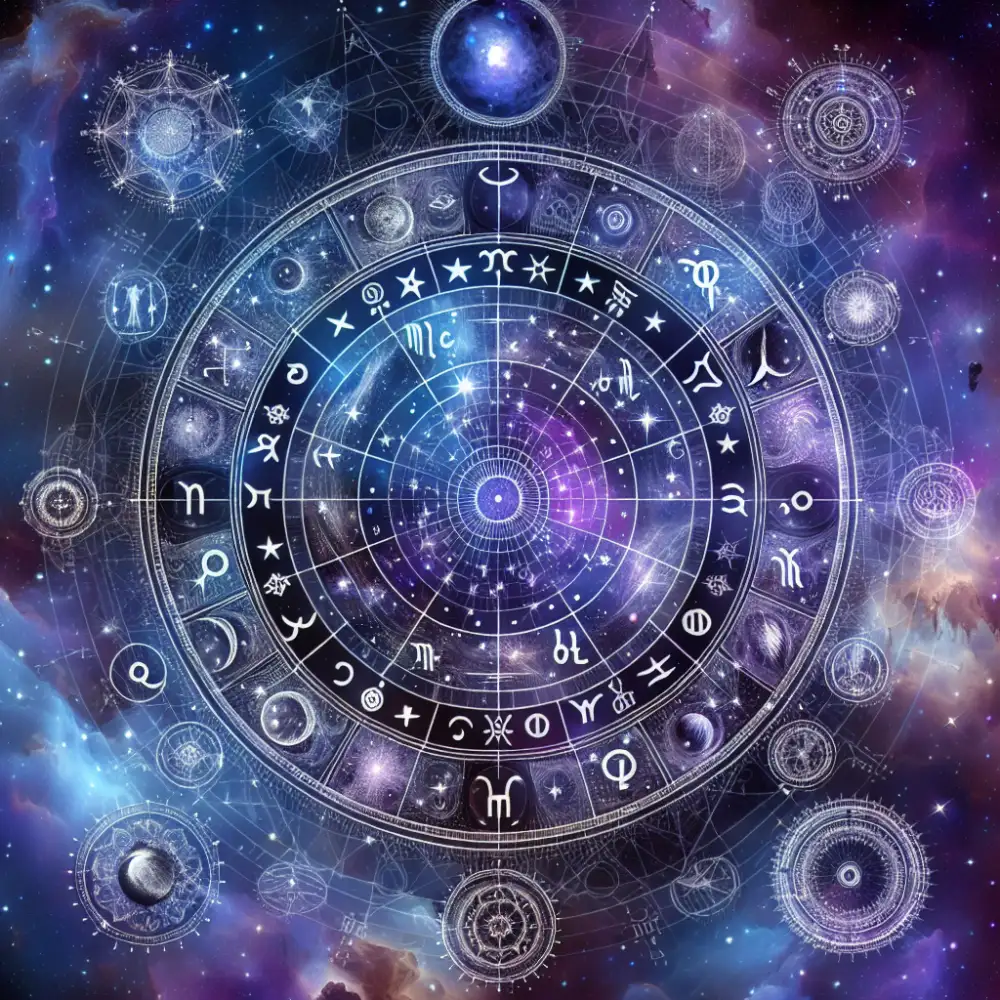
Ultimately, whether or not one believes in the concept of "indigo children" or their supposed psychic abilities is a personal choice. However, it's essential to approach these topics with critical thinking, relying on evidence-based information rather than unsubstantiated claims.
Importance of spiritual expression
For many who identify with the concept of "indigo children," the journey of self-discovery often leads to a deep exploration of spirituality. While traditional astrology focuses on personality traits and life paths, understanding the spiritual expression within an "indigo child's" birth chart requires a more nuanced approach.
It's important to note that the term "indigo children" is not a recognized astrological concept. However, individuals who resonate with this label often describe heightened sensitivities, a strong sense of purpose, and a deep connection to spirituality. Astrology can offer a framework for understanding these experiences, not as definitive labels, but as potential pathways for growth.
Examining the placement of planets like Neptune and Jupiter in the birth chart can provide insights into an individual's spiritual inclinations. Neptune, the planet of dreams and intuition, might suggest a strong connection to the unseen realms. A prominent Jupiter, associated with expansion and higher learning, could indicate a thirst for spiritual knowledge and exploration.
Aspects, or the angular relationships between planets, also play a crucial role. For example, a harmonious aspect between Neptune and Uranus, the planet of innovation and change, might manifest as a drive to challenge conventional spiritual norms and seek out unique paths.
However, it's essential to remember that a birth chart is not a deterministic blueprint. It's a map of potential, offering guidance and insights into our inherent nature. The true importance of spiritual expression for those who identify as "indigo children" lies in the journey itself.
It's about exploring different spiritual practices, connecting with like-minded individuals, and trusting their intuition to find what resonates deeply. This journey is deeply personal and ever-evolving, and the birth chart serves as a valuable tool for self-discovery and spiritual growth.
Published: 25. 06. 2024
Category: spirituality

